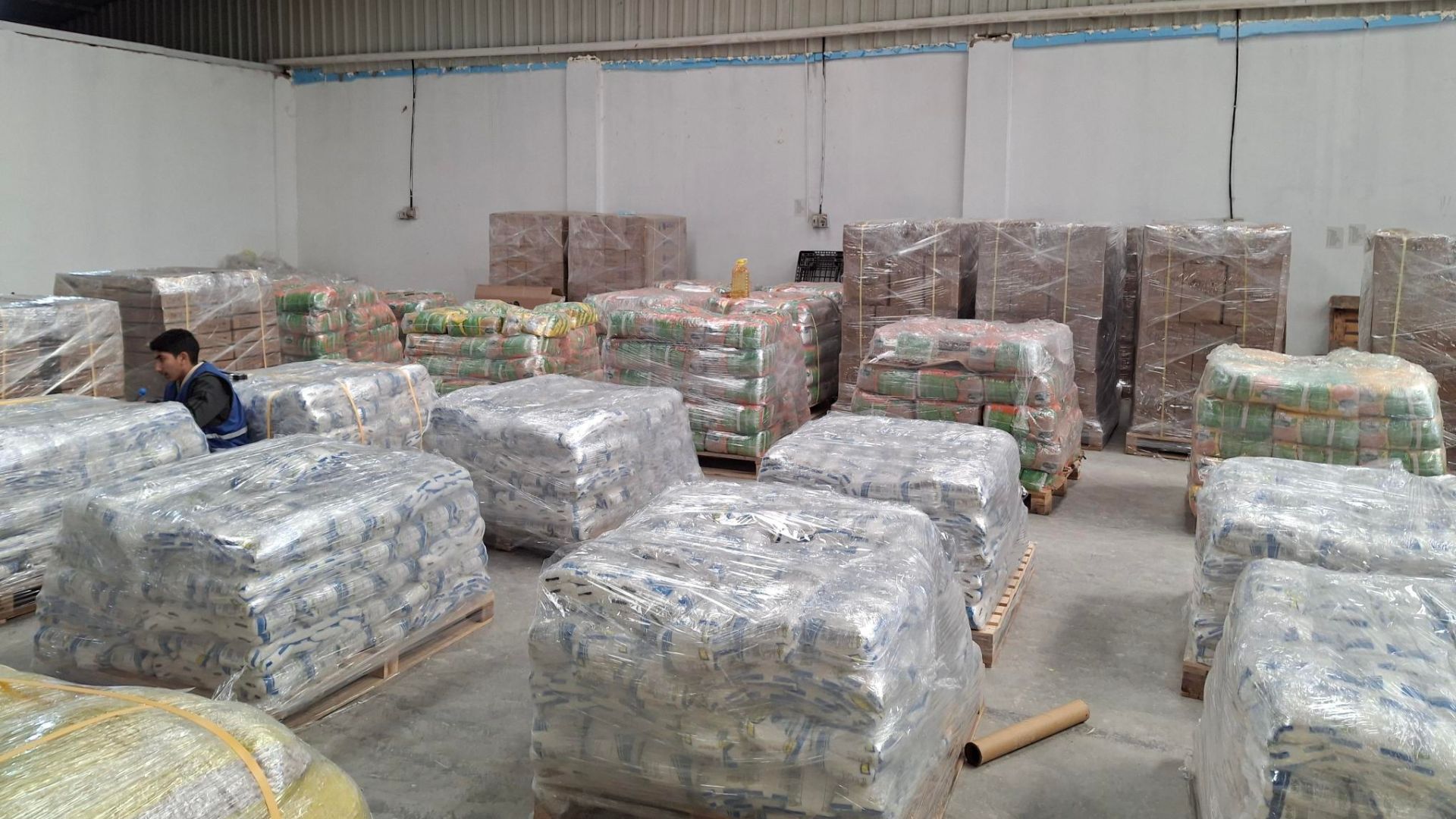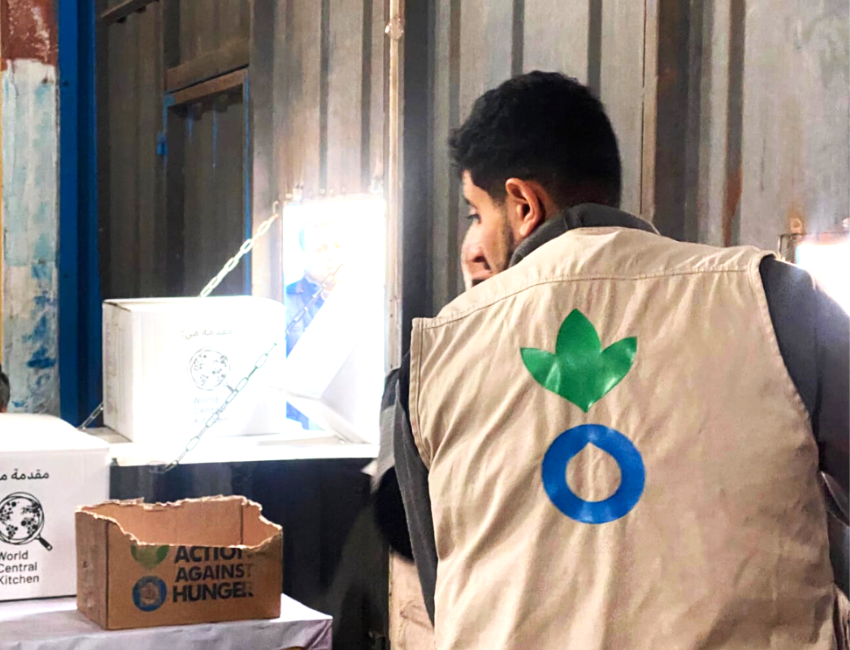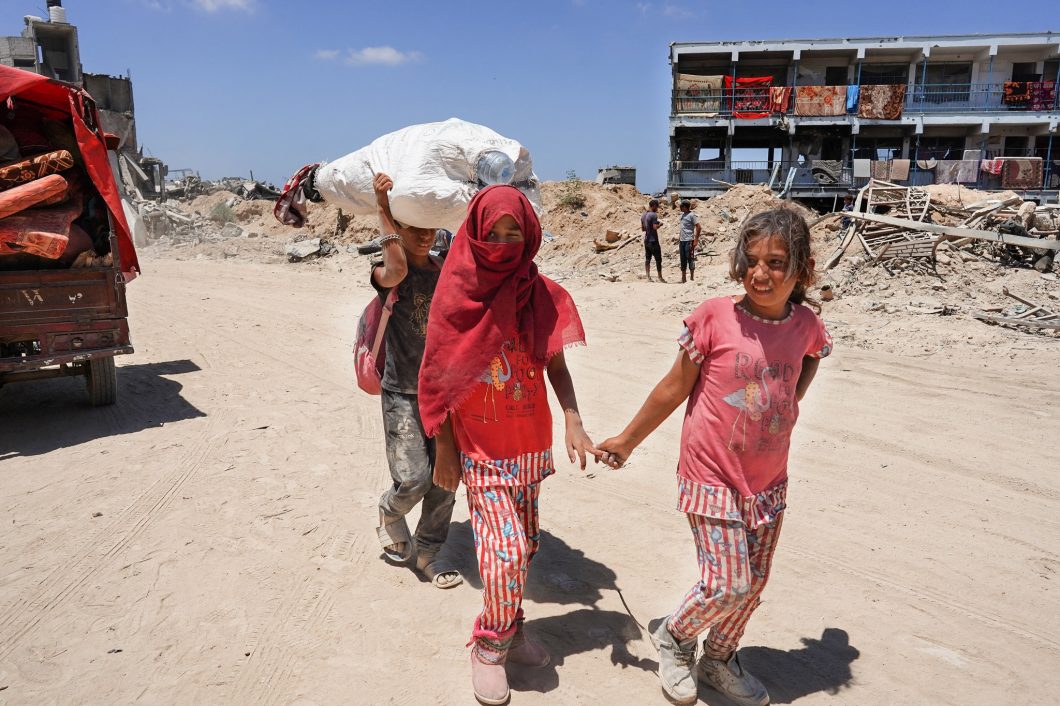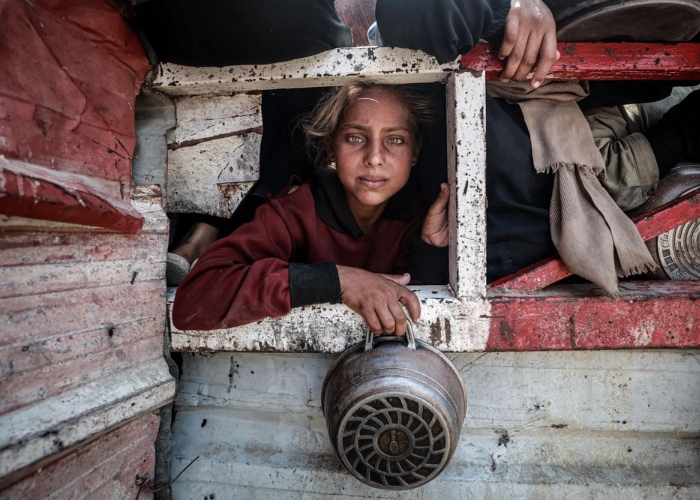Out of all the partners of the United Nations’ World Food Programme – who announced that it ran out of food in late April – Action Against Hunger is one of the few to have remaining supplies in northern Gaza.
“We have been forced to prioritise and distribute aid based on the degree of need,” says an Action Against Hunger worker in Gaza. “This is a very difficult measure, as it means some families do not receive aid despite facing emergency circumstances. At times, children’s needs for nutritional supplements have exceeded the stock available to our nutrition programmes.”
Humanitarian organisations have more than 171,000 metric tons of food stocks – enough for three to four months of food rations for the entire population of 2.1 million people – waiting to be granted access into Gaza.
“Humanitarian aid remains the primary food source for 80% of households in Gaza while food production and food systems are severely weakened.
“That means that if the entry of humanitarian aid continues to be blocked, 8 out of 10 families in Gaza won’t be able to access food.”
Action Against Hunger and other organisations are seeing an increase of families adopting strategies to stretch remaining supplies from past aid distributions. For example, they’re mixing crushed macaroni with flour, reducing size and frequency of meals, and limiting daily bread consumption to one piece per family member or reserving it for children. However, it’s not enough to meet nutritional needs.
“The lack of food, clean water, and medicine is causing child malnutrition to increase, leading to stunting,” warns Natalia. “Children need sufficient quality and quantity of nutrients to survive.”

Pallets of food blocked from entering Gaza kept in our warehouse in Jordan until the border crossing points reopen.
No humanitarian aid for over two months has pushed the Palestinian population to extreme levels of hunger. Without an immediate opening of all border crossings and lifting of the siege, the crisis could reach unprecedented levels. Action Against Hunger continues to provide vital assistance, but the entry of aid supplies is essential to keeping our programmes running.
Parties to the conflict and the international community must not wait to act until famine is declared. By that time, we will have collectively failed to stop preventable deaths from happening.




